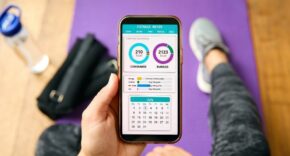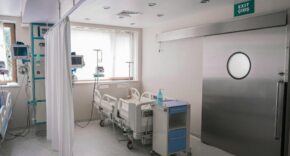
Modern healthcare facilities that digitize their operations are leading to evolutionary changes in the practices of registered nurses (RNs). Becoming a nurse today means performing patient care functions, interpreting data, communicating through telehealth, and handling digital health systems.
Healthcare organizations now seek nurses who demonstrate advanced technical skills to help healthcare systems function in contemporary settings while using technology for better patient outcomes.
Taking an accelerated BSN program online is the fastest route into dynamic healthcare work. Accelerated BSN programs provide quick entry for degree holders outside nursing who want to transition to nursing practice by combining essential clinical training and digital skills needed for modern technologically enhanced healthcare delivery systems.
The New Face of Healthcare
Modern health institutions currently apply digital health technology in their daily operations. The healthcare sector delivers essential patient care through Electronic Health Records (EHRs), mobile health applications, wearable devices, AI-based diagnostics, and innovative hospital systems. Due to their widespread use as standard practice, nurses must demonstrate competence in utilizing this technology while interpreting its data to make fast decisions impacting patient outcomes.
The nursing profession benefits from technical adaptability and professional gentleness because of its strength in working with digital systems. Their expertise includes dealing with complicated interfaces, solving technical issues instantly, and using technology to deliver improved, accurate, efficient, and customized care. These capabilities represent necessary competencies instead of optional capabilities for current nursing practice.
From Bedside to Dashboard
Healthcare teams depend on nurses as their primary observers and information collectors. Nurses are the main users who interact with dashboards and patient monitoring equipment while using telehealth technology platforms in hospitals today. Skilled nurses now need to detect patterns in patient information while regularly examining digital systems data to predict medical complications ahead of time through predictive models.
Patients benefit from wearable technology devices that provide real-time analysis of heart rate, blood pressure, and oxygen levels in healthcare facilities across many areas. Nurses’ ability to read and compare these outputs with the EHR patient history enables them to perform priority escalations for patient care without any delays. Proof of quick medical responses stems from both healthcare expertise and technological competency.
The surge of nurses joining interdisciplinary teams requires them to use technical platforms to share information with other medical personnel, such as physicians, case managers, and pharmacists. The efficient data processing alongside database access enhances patient care coordination and lowers the number of medical errors.
Telehealth and Remote Patient Care
Nurses currently deliver healthcare advancements by offering remote education, helping patients get treatment, and remotely monitoring patients with ongoing conditions through virtual healthcare technology.
The requirements for telehealth practice combine specialized communication abilities with technical understanding. A nurse needs to develop phone screen connectivity with patients while they resolve technical glitches and input computerized notes instantly to maintain quality care and protect patient privacy.
The emerging modern technology trend in online nursing education programs now includes telehealth simulation modules and training components. New nurses who learn these digital competencies will be ready to practice healthcare in the upcoming generation of combined virtual and bedside care systems.
Data Literacy and Decision-Making
Data has emerged as a powerful asset in healthcare, and healthcare professionals need proper data utilization skills to succeed. Nurses must demonstrate data interpretation skills and use clinical data to make patient care decisions because analyzing quality metrics is a significant part of their current responsibilities.
Technical ability alone is not enough to be tech-savvy since data literacy is also crucial. Reading analytics reports must be paired with skillful questioning about report contents to extract meaningful knowledge that nurses can apply for clinical improvement. People who successfully merge numerical information with human-centered healthcare functions possess outstanding qualifications to guide quality enhancements and patient safety systems.
Leadership in a Tech-Driven World
Healthcare organizations’ digital investments require leaders who advocate for ethical innovation and mentor team members to adopt new technology solutions. Nurses who demonstrate mastery of technological skills become representatives on digital transformation boards, providing guidance throughout system implementation projects while researching technology in healthcare.
Nurses in leadership positions need to demonstrate clinical competency and strategic thinking abilities to evaluate technological impacts on the medical staff’s healthcare results and processes. Advanced nursing informatic specialists and leaders with tech expertise use their expertise to create better healthcare information systems that benefit patients and staff members throughout the hospital.
Why It All Starts with the Right Education
Healthcare professionals who want to become future-ready nurses must select educational programs that offer clinical lessons and skills related to success in technologically advanced environments. Modern digital competencies now appear throughout the curriculum of various online BSN programs.
These programs’ learning environment mimics hospital technology, so students gain practical expertise through virtual labs, EHR training modules, simulation-based clinical, and remote collaboration tools.
Patients entering accelerated BSN online programs gain maximum benefits from their education because they bring previous experience working with technology in other professional fields. The students who arrive technologically proficient commonly demonstrate quick integration of medical software applications, which makes purpose-built curricular designs particularly beneficial.
Competent nursing practice in the future includes compassionate care, digital competency, and data analysis abilities to lead healthcare systems under constant modernization. The growing need for technologically competent RNs will drive high employment opportunities throughout hospitals and health centers, including community settings and clinics.











